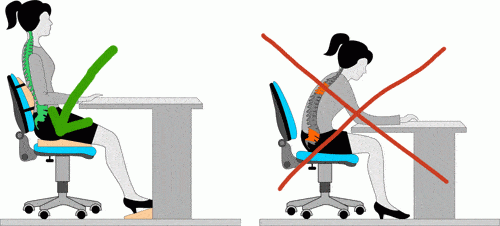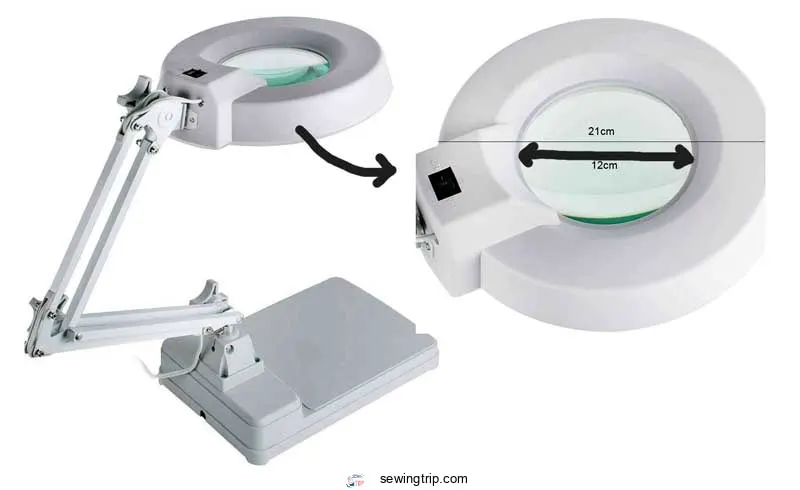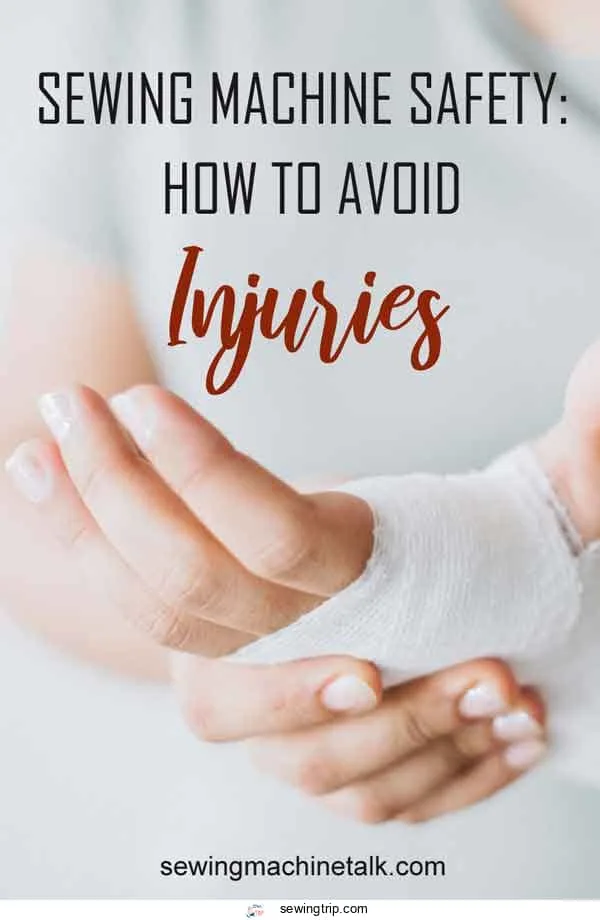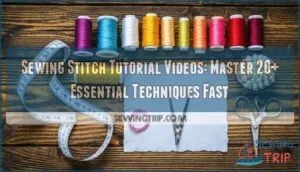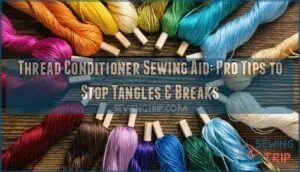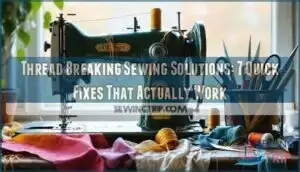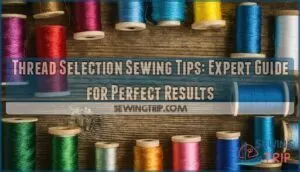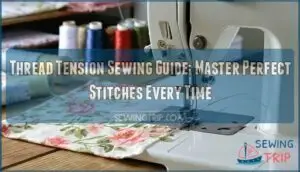This site is supported by our readers. We may earn a commission, at no cost to you, if you purchase through links.
Security is really crucial as well as around the sewing location.
In this short article, we take a close take a look at which safety policies you ought to apply around a sewing device as well as being when you are sewing by hand.
We do have sharp items in addition to steaming hot irons around this sewing area.
So make certain you review the safety measures below, in order to remain risk-free
We will begin by going over out sewing equipment safety and security checklist and after that we will proceed to a few safety tips specifically for sewing by hand.
A lot of the safety tips will certainly be universal and also can be related to both hand sewing and also as good tips for sewing with the maker. No matter whether you are using a home sewing machine, an industrial machine, a server, a quilting device, or an embroidery equipment.
The tips are the same.
Table Of Contents
- Safety and security Around the Sewing Machine
- 1) Choose a safe setup
- 2) Eyes on the needle!
- 3) Unplug when changing the feet (and also you are done sewing
- 4) Unplug the machine when you cleanse it
- 5) Always utilize the right needle
- 6) Don’t go (too) quick
- 7) Turn off the iron in between usages
- 8) Good safety and security around scissors and rotating cutters
- 9) Choose a good pose
- 10) Good security around pins
- 11) Avoid hanging hair and loosened garments
- 12) Have a good light so you can see what you are doing
- 13) Remove any type of pins before you start sewing
- 14) Check the voltage as well as watts of the maker
- 15) “Safety gadgets has been turned on”
- Hand Sewing Safety Tips
- Special Sewing Safety Tips For Kids
- Have a good time!
Safety and security Around the Sewing Machine
Sewing on the Sewing device is really various from hands sewing We have a great deal of moving components and when the needle is stitching up-and-down we need to take extra safety measures.
1) Choose a safe setup
This is the way we like to lay out the sewing space location.
As well as there are good reasons for this.
The primary reason for the setup is to make it easy to get to every little thing quickly.
But we are also dividing both tables in order to have a sitting elevation around the sewing device and a standing height table for reducing and ironing.
The primary reason we like to have a greater table for cutting ironing is that we want to intend to switch over in between sitting and also standing up when in a while. This is crucial to prevent neck and shoulder issues.
Make sure there are no electric cords running across the floor.
You likewise require to make certain the iron is positioned in a safe range from children and also cables. It’s a good idea to have a long-term room for it on the main table. Otherwise, it might obtain overturned or possibly someone will be tipping on the electric cable and also create it to drop down on his/her feet.
2) Eyes on the needle!
It’s essential to keep your eyes on the needle in any way times. Especially if you’re not extremely skilled.
As quickly as something else catches your interest you must raise your foot from the pedal.
The phone may start ringing or maybe the youngsters are howling for your interest. Because instance, you ought to quit what you’re doing and also ensure you can give your job full attention.
You should likewise keep in mind always to keep a safe distance to the relocating needle. Have at least one inch (or more) in between the needle and also your fingers as well as hands. When the machine feeds the fabric you may instantly relocate your fingers as well so we need a little “shake area”.
3) Unplug when changing the feet (and also you are done sewing
Make sure the equipment isn’t switched on when you are transforming the presser feet. Or else, you could end up wounding yourself if you unintentionally struck the pedal.
It only takes a couple of seconds additional and is a crucial safety preventative measure to take before you put your finger under the needle.
On more recent makers is insufficient to detach the cable to the pedal since you will certainly also have an on/off button placed on the device. So ensure the power cord is disconnected entirely before you proceed.
You additionally need to disconnect it as well as transform it off when you are done sewing You should not let it sit by itself with the power on. Even if you simply leave the machine to go eat, you should transform it off.
4) Unplug the machine when you cleanse it
It’s really essential to separate the power cord out of your machine before you start cleansing it.
When you’re cleaning up the equipment, you are going to open the bobbin instance as well as you are also mosting likely to put your hand around the needle area. So prior to you do so constantly transform the device off and eliminate the power cord.
Currently you’re ready to begin cleaning up the equipment. Here’s a comprehensive overview on just how to cleanse your sewing machine.
5) Always utilize the right needle
It’s truly essential to make use of the correct kind as well as size needle with your device.
We have a great deal of various kinds of sewing equipment needles. We will utilize one collection of needles for natural leather, plastic, denim, and other heavy-duty fabrics and also we will certainly make use of other needles for lighter kinds of material.
Since you have actually made certain you’re utilizing the appropriate kind of needle you need to make sure the needle made to fit your specific device.
Some sewing equipment brand uses its very own collection of needles. So you require to inspect your guidebook prior to you buy needles. Some devices will have a flat component of the needle shank to the right or the rear of the needle.
Right here’s a little photo to show what we’re chatting concerning:
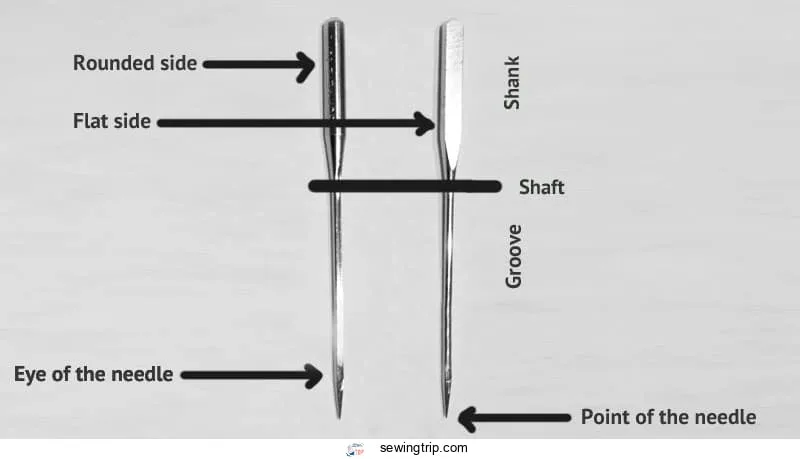
As you can see that bordered side to the shank. For your typical house sewing machine one side will certainly be flat and also for your commercial sewing maker, it will certainly be rounded right.
We have actually likewise seen sewing maker brand names which will certainly have the flat side of the shank directing to the left. So, as you can see this differs a lot from design to version and also what kind of sewing makers you are collaborating with. So the lower line here is to always check your hand-operated before you head out as well as buy needles for your sewing machine
If you’re not exactly sure which needle is appropriate for your project you can have a look at this overview: All you need to understand about sewing machine needles.
6) Don’t go (too) quick
If you do not have much experience with the sewing machine you absolutely require to begin slow.
This is also real whenever you are servicing an additional equipment then you are used to. Sewing equipments function differently as well, as there can be lots of distinctions in between models and also brand names.
Some sewing equipments will go really quickly like this durable machine from Singer.
It will go as quick as 1,100 stitches per min and if you are used to another design which is slower (normal) you could obtain an undesirable shock if you attempt to go with complete rate!
So till you get truly accustomed to your device, you must always start out sluggish.
If you’re running the equipment also fast you may wind up with a needle in your finger. Give the device time to feed the textile properly in a manner that you have lots of time to move everything around.
7) Turn off the iron in between usages
Another good tip is to constantly turn off the iron when you’re not using it.
Possibly you can bear in mind that it is hot yet someone else may come by and mistakenly touch it. So to make certain nobody gets hurt, the best means is to simply transform it off when you aren’t using it. It will certainly heat up really quickly when you need to use it.
This is also essential in order to conserve a few dollars on the electrical energy bill. Steaming curling iron or is drawing a whole lot of kilowatts!
8) Good safety and security around scissors and rotating cutters
You need to pay unique interest to your scissors and also rotating cutters. Let’s begin by speaking about scissors.
We have several type of scissors around the sewing area and also they are all meant to be extremely sharp in any way times. So make certain they are constantly positioned back in your sewing box (or anywhere you keep them). You should never ever leave them laying around on your table since they might drop down on the ground and pierce your feet.
It’s also vital to always move the rotary cutter far from your body. You need to never ever move it toward on your own since it could slip your fingers as well as cause an injury.
It’s vital to constantly maintain your scissors as well as rotating cutters incredibly sharp so they are simple to operate. Or else, they might get embeded the fabric.
We want the scissors and also rotary cutters to operate precisely as we intend, as well as for the factor, they need to only be utilized for fabrics.
9) Choose a good pose
One more essential element of sewing is to keep a good as well as healthy and balanced pose.
If you are sitting like the person to the right, you are probably mosting likely to cause veteran troubles. This is a certain means to offer yourself back and also shoulder troubles. It’s crucial to sit upright and also it can be a good idea to utilize a wedge cushion.
The wedge cushion will certainly aid you obtain a good angle from your bottom to your knees. Ensure you’re not leaning forward in order to run the sewing machine. You should have the ability to rest upright in any way times, so place the points you need close by.
Ensure you read the initial pointer too which will certainly help you establish up your sewing location. It’s essential to switch in between resting as well as standing during job. We advise establishing the standing station for ironing, determining, and also reducing.
We utilize this chair which works really well for both people. It’s a Norwegian layout which can be changed in a TON of ways. It provides actually good support for the back. We don’t utilize the wedge cushion with this chair because it can tip the seat onward and also backward.
10) Good security around pins
Always utilize a pin pillow.
It’s really essential to keep track of the little pins we utilize around our sewing maker. The very same opts for sewing by hand.
You might utilize numerous pins for attaching the pattern to the material and you likewise may make use of a handful of pins which require to be removed after you have sewn everything together. Always make certain to count the number of pins you placed right into the material. In this manner you will certainly understand specifically the number of pens you require to remove from the fabric as soon as you’re making with the project.
So suppose I shed pins on the flooring? The good idea is to keep a strong magnet around the sewing location. It will be quite easier to locate the little pins if you have a good magnet.
Utilize the magnet to browse the floor, especially if you are dealing with the carpeting. It can be really difficult to locate the little pins if they fall down into the rug fabric.
By swing a magnet slowly and also meticulously throughout the location, you will certainly be able to snatch little pins.
11) Avoid hanging hair and loosened garments
Make certain to tie up your hair before you go into the sewing room. We do not want the hair to conflict with a needle and also get entangled up into the fabric.
The same chooses loosened garments.
Make sure to never wear a scarf or any kind of other loose sleeves and so on. They may obtain tangled up into the textile and also the needle location and before you understand it, you are drawing on your own down towards the needle. Not an extremely good circumstance!
So always make certain to have your garments resting near to the body without any loose parts that can get involved in the device.
12) Have a good light so you can see what you are doing
You need a correct sewing lamp to light up the working space. It’s unsafe to stitch in dimmed light as well as you will certainly increase the danger of sewing the wrong points together (like your fingers).
It’s particularly important if you such as to stitch at night or at night time. This is where the mind will unwind and you will certainly have a problem seeing what you are doing.
If you are aesthetically damaged you ought to get a lamp with a magnifying glass. Or else, a good lamp with an all-natural light tone is the best alternative. There are 3 different kinds of light we can have from lights as well as there are different usage instances for each type.
We have actually written a considerable guide on light around the sewing space. In this write-up you can check out all there is to understand about different sorts of light and also how you obtain the excellent light for your sewing space.
13) Remove any type of pins before you start sewing
We don’t want pins inside the fabric when we begin sewing This can be dangerous because when the needle starts stitching it might hit among the pins on its way down. If that takes place, the needle will probably break and also it may fall under the bobbin area and also wind up inside your equipment.
As we discussed previously, it’s always a good idea to track exactly how many pins you insert into the textile. By doing this you will have the ability to see to it you remove all of them prior to you begin stitching.
If the needle does not enter the maker it might get up in the area and end up on the floor (or hit you!). That’s not good either, as a person could step on it and obtain it stuck in the foot.
So always place all the pins back right into the pin-cushion before you start running the machine.
14) Check the voltage as well as watts of the maker
If you are utilizing a brand-new machine or you are utilizing your maker in one more nation you must constantly see to it to check the number of watts the device requires.
In Europe, sewing equipments run at 20 Volts and in the States they go for 110 Volts. So this impacts the quantity of Watts, the equipment obtains. So see to it to check the manual and also the rear of the machine for these numbers prior to you plug it in.
Normally a sewing machine will certainly need in between 80- 120 Watts but always get in touch with your maker. If you are using a commercial sewing equipment model it may likewise have a special setting you need to take note of.
You need to also examine the cables every so often. There must not be any type of cracks as well as cuts on the cables and if you find any abnormalities you require to change the electrical cord promptly.
15) “Safety gadgets has been turned on”
This is a message you might get with your Brother sewing equipment. When that happens right here’s what you should do.
- Initially, you simply transform the device off.
- Then you need to examine your top string in addition to your bobbin string. See to it, the equipment is established up properly, and also inspect that the upper string is running through all the ideal guides and hooks.
- Check the bobbin instance for lint, dirt etc.
- Inspect the needle isn’t bent or broken Beginning by transforming the handwheel towards you to make sure that the needle is not striking the steel plate below the needle area. Make certain to replace the needle if the trouble persists.
- Turn the machine back on.
So since you have threaded the machine and you have actually inspected all the concerns over, the equipment needs to function correctly again.
However, if you’re experiencing the exact same trouble you must call the service center.
Hand Sewing Safety Tips
16) Use thimbles
The thimble is an excellent little tool. It ensures you will not obtain the needle into your fingers as you stitch. It’s supposed to safeguard your fingers from the needle and also there are various kinds and also sizes.
Obtain a dimension as well as the version that fits your finger so it won’t fall off.
The thimble is specifically vital when you are dealing with hefty fabric like natural leather, vinyl, denim etc. Because you will certainly need to apply even more pressure on the needle and also if it slips, it can finish up doing some real damage.
Constantly keep an additional collection of thimbles in your sewing box so you understand you have an added if it breaks or you lose it.
17) Keep needles far from your mouth
It can be alluring to use your mouth as a third hand. Yet you must not use your lips to hold needles and also pins. You may unintentionally get it stuck in your mouth or swallow it if you occur to trip over something or if somebody surprises you.
See to it to maintain pins inside the pincushion or inside your device tray. That’s where they belong when you are not utilizing them with the material.
18) Keep your sewing box clean
Stay clear of tossing your sewing equipment right into your sewing box (or the accessory tray on the equipment). You might obtain hurt when you try to get a thing and also you have scissors as well as pins laying around in there.
Make sure all pointy and sharp things are enclosed in a box or a piece of material in any way times.
Take your time to maintain the workplace clean and also always round off by arranging your boxes as well as cabinets so you know specifically where everything is located. That will certainly both conserve you time as well as aid you deal with the sharp and sharp products with treatment.
19) Safety gloves for sewing
You can get unique gloves which are created to keep your fingers risk-free while you stitch.
These will normally cover your thumb and also 2 various other fingers and they will commonly be marketed as quilting handlebar covers. They are rather useless if you ask me but they do exist. So, if you seem like this may assist you they could be something to inspect out.
Yet under regular scenarios, you will certainly be well covered with a thimble. The safety handlebar covers are primarily protection from cuts, so unless you are doing a great deal of reducing them possibly will not be of much help.
Special Sewing Safety Tips For Kids
Let’s end up off by providing some good security tips for kids that are sewing
Children must always be monitored when they stitch. Particularly if they are dealing with a sewing device. It’s hard to specify when you allow sufficient to handle the electrical sewing device. You need to enjoy your child up until you feel they are comfortable and also secure around the device.
It’s a device developed for grownups so make certain your children don’t play about with it when you are not house. Lock it away in a cabinet securely and out of reach from smaller children.
20) Keep these points locked away
Some things around the sewing area or not implied for the youngsters to mess around with. So make certain to never allow kids to make use of these products not being watched:
- The Iron
- The needles
- The scissors and rotary blades
21) Teach the to gooo … sloooowwwww …
Children commonly get excited to speed up points up when they seem like they get it. It’s your task to teach them to be patient around the sewing device.
They require to find out exactly how to sew gradually and maintain the rate down until they have been sewing for many hours.
Take note of the audio from the sewing machine. When you listen meticulously it’s easy to spot when the device is running also fast. Talk with them about security and make certain they recognize the actual risks of touching the needle.
22) Never leave a youngster unattended with sewing gears
You need to constantly be monitoring the kid when he or she is utilizing your sewing gear of the sewing machine. Its essential in order to see to it whatever is going efficiently.
Specifically if your youngster hasn’t been sewing much before or if she or he is really young.
Finding out to sew is an excellent ability they will take advantage of their entire life yet you require to set time aside to function alongside them as they discover the basics of sewing
23) Introduce a “no fingers” area
If your youngster is collaborating with the sewing device it’s a good idea to settle on a “no fingers” zone. This will certainly be the location around the needle as well as the bobbin area. Don’t let the little kid mess around with the bobbin instance and the needle.
You should assist and help them every single time when desire to thread the equipment or alter the needle setups.
You can note the area around the needle with tinted tape to make it very visible where the fingers are not enabled. This is a terrific way of making sure the little fingers will not finish up below the needle.
24) No walking (or running!!) with scissors and needles
We do not the children running around your home with scissors as well as pins. Make a contract concerning where they are and where they can use them. Have the scissors stay around the maker and the cutting table so they don’t finish up on the flooring or in other areas.
It’s important to educate them exactly how to take care of sharp as well as pointy item with regard and also treatment.
Allow them know precisely where everything is intended to be as well as why you desire it to be this way. It obtains a lot less complicated for the children to grasp as well as remember your policies if you take your time to describe why you are comprising these regulations for them.
Have a good time!
We hope we haven’t scared you far from the sewing room with all these safety measures. It’s important to have a good time in the sewing space and we do not wish to sit back with a feeling that sewing is unsafe.
Sewing isn’t hazardous if you take the proper preventative measures and also with the tips above you should be in good hands.
Just utilize your sound judgment and make certain to always be sharp and also totally awake when you pull out the sewing equipment or your sewing gear.
Happy sewing

